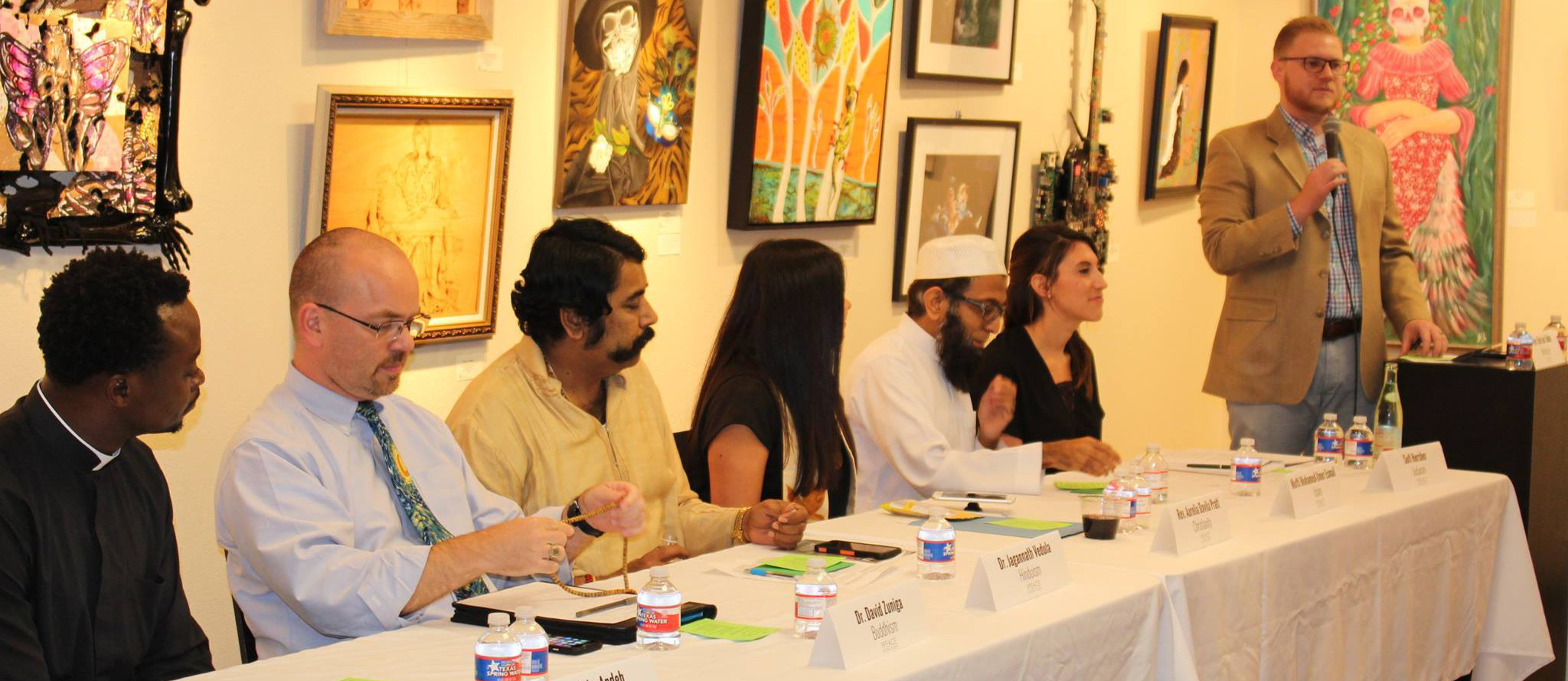
By Marv Knox, Fellowship Southwest
Visit The Baptist Standard for the full version of this article.
“The darkest memories produce rays of light,” Sofi Hersher, a staff member of the Religious Action Center of Reform Judaism, told an interfaith gathering in Round Rock, Texas.
In her darkest memory, Hersher is nine years old, watching her synagogue engulfed in flames. Now, from the perspective of 18 years, she realizes her hometown of Sacramento, California, “became a better place to live than it was before” two brothers torched Congregation B’nai Israel and two other synagogues.
Hersher and panelists from five other faiths conducted “a conversation on religious liberty,” sponsored by Peace of Christ Church, a Cooperative Baptist Fellowship congregation. The event was the latest installment in a series of interfaith discussions — two each in the fall and spring — the church convenes in the booming, diverse community north of Austin, noted Pastor Kyle Tubbs, a 2015 BJC Fellow.
“I remember people hated me. … Why? Because we’re Jewish,” Hersher recalled. “I felt the rise of fear because of religious bigotry.”
Jews are the target of 56 percent of hate crimes in the United States, although they comprise just two percent of the population, noted Hersher, the first non-Christian BJC Fellow.
Ignorance, in the form of religious illiteracy, fans the flames of religious violence, she insisted, adding, “People fear what they don’t understand and hate what they can’t conquer.”
“At its most basic, religious liberty is the freedom to believe anything you want,” Hersher explained. And the best, most practical way to protect religious liberty is “to get to know each other and protect each other’s rights.”
That happened in Sacramento after the synagogue arsons, she reported, describing beautiful childhood memories, when her community rallied to support Jews devastated by the synagogue fires. Those expressions of interfaith unity taught her an important life lesson: “We, too, can build a better world.”
After Hersher’s keynote address, she and other panelists discussed how religious liberty is a theme embedded in various faith traditions.
“There is room for religious liberty in Islam. Everyone can practice their own faith,” said Mohamed-Umer Esmail, imam of the Nueces Mosque in Austin. To illustrate, he described how the Prophet Mohamed allowed not only his followers, but also Jews and pagans to operate their own legal systems and courts in territory he controlled.
“Religious liberty is founded on the inviolability of each human conscience,” stressed Uche Ande, a native of Nigeria and pastor of St. Margaret Catholic Church in Giddings, Texas.
Conversely, the concept of religious toleration “has caused more harm than good,” Ande added. Toleration implies religious practice is a privilege, which can be revoked or taken away, he explained, while religious liberty is a divine right.
Religious liberty is vital because of its link to respect, said David Zuniga, a Zen Buddhist priest in Austin. “It’s important to respect others” of all faiths and no faith, he said.
Similarly, government decisions to favor one religion over others are unwise, added Jagannath Vedula, a founding trustee of Austin Hindu Temple and Community Center.
“The Baptist tradition was founded on religious freedom,” said Aurelia Davila Pratt, pastor of spiritual formation at Peace of Christ Church and a 2017 BJC Fellow. She shared examples, including how Thomas Helwys, one of the two founders of the first Baptist church in the 17th century, confronted King James I of England, championing absolute religious freedom.
“This topic is one that makes me proud to be a Baptist,” Pratt added.
Photo of panel by Marv Knox.
This article appeared in the November/December 2017 edition of Report from the Capital. You can also read the digital version of the magazine or view it as a PDF.




